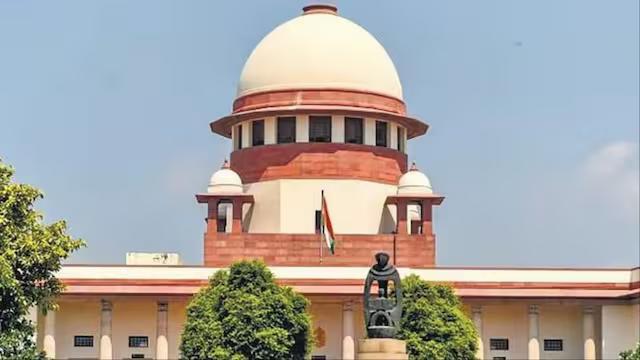
Many Waqf Properties are Not Limited to Muslims: Centre to SC
The Waqf Amendment Act, which was passed by the government in 2013, has been a subject of controversy and debate in recent times. The Act aims to regulate and reform the Waqf properties, which are governed by the Waqf Act, 1995. The Centre has now informed the Supreme Court that many Waqf properties are not limited to Muslims and involve claims of other communities. This revelation has significant implications for the way these properties are managed and regulated.
In its response submitted to the Supreme Court, the Centre opposed the stay on provisions of the Waqf Amendment Act. The government stated that regulating these properties could have a public order aspect, implying that the issue is not limited to the religious beliefs of the individuals involved. This is a significant departure from the previous understanding of Waqf properties, which were seen as being exclusively owned and managed by Muslims.
Waqf properties are charitable endowments that are governed by religious laws. These properties are typically used for the benefit of the Muslim community and are managed by Waqf boards, which are responsible for maintaining and utilizing the properties for the benefit of the community. The Waqf Amendment Act was passed to reform the management of these properties and to ensure that they are used for the benefit of the community.
The Centre’s assertion that many Waqf properties are not limited to Muslims and involve claims of other communities is a significant development in this context. It suggests that the issue of Waqf properties is not limited to the religious beliefs of the individuals involved, but also has implications for public order. This is because the management of these properties could have an impact on the rights and interests of other communities, which may also have claims to these properties.
The Centre’s opposition to the stay on provisions of the Waqf Amendment Act is also significant. The Act was passed to reform the management of Waqf properties and to ensure that they are used for the benefit of the community. The government’s assertion that regulating these properties could have a public order aspect suggests that the issue is not limited to the religious beliefs of the individuals involved, but also has implications for public order.
The Supreme Court had earlier stayed the implementation of the Waqf Amendment Act, pending a review of its provisions. The Act was passed to reform the management of Waqf properties and to ensure that they are used for the benefit of the community. However, the stay has been challenged by the Centre, which has argued that the Act is necessary to regulate the management of these properties and to ensure that they are used for the benefit of the community.
The controversy surrounding the Waqf Amendment Act is not new. The Act has been criticized by many for being discriminatory and for undermining the rights of Muslims. The Act was passed by the previous government and was seen as a majoritarian move to undermine the rights of minority communities. The Centre’s assertion that many Waqf properties are not limited to Muslims and involve claims of other communities is a significant development in this context.
In conclusion, the Centre’s assertion that many Waqf properties are not limited to Muslims and involve claims of other communities is a significant development in the context of the Waqf Amendment Act. The Act was passed to reform the management of Waqf properties and to ensure that they are used for the benefit of the community. The Centre’s opposition to the stay on provisions of the Act is also significant, as it suggests that the issue is not limited to the religious beliefs of the individuals involved, but also has implications for public order.




